#linus of thrace
Explore tagged Tumblr posts
Text
As a fandom, we are really sleeping on the fact that Calliope had TWO sons.

Linus of Thrace (LINUS!!!) was the personification of a dirge or lamentation (threnody), a wailing ode of mourning. The wettest cat, just like his father.
Now I need a crackfic about Calliope’s and Dream’s layabout son, who is still backpacking around India to find himself
#calliope#orpheus#linus of thrace#dream of the endless#greek mythology#the sandman shitposting#neil gaiman
215 notes
·
View notes
Text
APOLLO

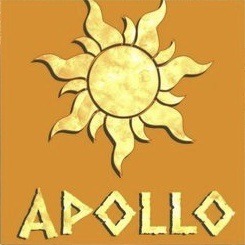

WHO IS HE?
Apollo is the god of the sun, prophecy, oracles, light, music, the arts, song, poetry, healing, medicine, plague, disease, protection of the youth, knowledge, and herds. He is the son of the god Zeus and the goddess Leto, and the twin brother of the goddess Artemis. Apollo is depicted as a handsome and radiant god who is skilled in many areas, including music, archery, and medicine. He was also known for his intelligence and foresight, and was often consulted for advice and prophecies. Apollo was often depicted holding a lyre, the instrument that he played and used to soothe the worries of mortals.
BASIC INFO:
Appearance: Apollo is usually depicted as a handsome young man with golden hair and a radiant complexion. He often wears a laurel wreath, which is a symbol of victory and excellence, on his head. He is also often depicted holding a bow, a lyre, or both, and wearing a flowing robe that is sometimes adorned with intricate patterns. Apollo is often portrayed as a youthful and attractive god, with a strong build and a confident, almost arrogant demeanor.
Personality: he is known for being a warm and affectionate deity who is fond of his devotees and enjoys their company. He is often depicted as being charismatic and charming, and is known for his quick wit and intelligence. He is also known for his appreciation of art and culture, and is often depicted engaged in music, poetry, and other artistic pursuits. With his devotees, Apollo is often portrayed as being generous and responsive to their prayers and supplications, and is often called upon for favors and blessings related to health, creativity, and success.
Symbols: lyre, laurel wreath, silver bow and arrows, tripod, the Sun, and Sunday
God of: the sun, prophecy, oracles, light, music, the arts, song, poetry, healing, medicine, plague, disease, protection of the youth, knowledge, and herds
Culture: Greek
Plants: sunflowers, laurel, larkspur, cypress, apple trees, palm trees, and hyacinthus
Crystals: sunstone, citrine, yellow sapphires, carnelian, heliodor, golden healer, peridot, anorthoclase, anglesite, swiss blue topaz, calcite, star sapphire, aurichalcite, cherry opal, white topaz, brewsterite, silver topaz, bristol diamond, ceylon sapphire, pecos diamond, blue amber, blue kunzite, bony amber, inderite, binghamite, Arkansas diamond, ajoite, baltic amber, trolleite, cacoxenite, mystic topaz, diamond, ulexite, corundum, milky quartz, boulder opal, goldstone, Ethiopian opal, black obsidian, and topaz
Animals: swan, hawk, raven, serpent, wolf, dolphin, griffin, and mouse
Incense: orange, lemon, clove, myrrh, frankincense, cypress, vanilla, and cinnamon
Practices: music magick, healing, art magick, protection, divination, and medicine magick
Colours: gold, yellow, orange, silver, blue, and white
Number: 7
Zodiacs: Leo, Gemini, and Capricorn
Tarot: The Sun, The Chariot, Strength, and Temperance
Planets: Sun and Mercury
Days: Sunday, Apollonos, Hyakinthia, Apellai, Thargelia, Boedromia, Noumenia, Pythian Games, Pyanopsia, Karneia, Litha, and Yule
Parents: Zeus and Leto
Siblings: Artemis (twin) and many paternal half-siblings
Partners: Cyrene, Rhetia, Daphne, Coronis, Hyacinth, Terpsichore, Rhoeo, Parthenope, Psamathe, Areia, Hecuba, and Melia
Children: Asclepius, Aristaeus, The Korybantes, Hymen, Anius, Cycnus, Linus of Thrace, Lycomedes, Melite, Miletus, Oaxes, Oncius, Orpheus, Troilus, Phemonoe, Philammon, Tenerus, Trophonius, and various others
MISC:
Sun: Apollo is associated with the sun because he was the god of the sun and the personification of the sun's light and warmth. The sun was seen as a powerful force that brought life and growth to the earth, and Apollo was believed to control the movements of the sun across the sky and regulate its heat and light. As the god of the sun, Apollo was also associated with purity, truth, and the passage of time, and his presence was often invoked in rituals and ceremonies related to the sun and the changing of the seasons.
Music: he was believed to be the inventor of the lyre and to have a deep understanding of music theory and composition. Apollo was often depicted playing the lyre, and his music was said to have the power to soothe the emotions and inspire the soul. Apollo was also the patron of musicians and singers, and was often called upon during musical competitions and festivals to judge contests and offer inspiration.
Poetry: his name is said to be derived from the Greek word "apo," which means "away" or "back," and the word "poiein," which means "to make" or "to create." As the patron of poetry and the arts, Apollo was said to have invented the art of writing and the alphabet, and he was often depicted holding a golden lyre, which he used to play music that inspired poets and bards.
Snakes: Apollo is associated with snakes because he was said to have control over snakes and could charm them with his music. One of the most famous myths involving Apollo and snakes is the story of the Python, a massive serpent that lived on Mount Parnassus and terrorized the people of the region. Apollo was said to have slain the Python and made the snake sacred to himself.
Bow and arrows: as the god of archery, Apollo was said to have unparalleled skill with the bow and could hit targets at great distances with accuracy and precision. Apollo's skill with the bow was legendary, and he is often depicted as using his bow to hunt, protect, and defend. The bow and arrow were also symbols of power and authority, and Apollo was often depicted holding them in statues and frescoes.
Laurel wreath: the laurel wreath is also associated with Apollo's role as the god of poetry and the patron of the arts, as the laurel plant was believed to have healing properties that could cure madness and inspire creativity. The Laurel wreath worn by Apollo is a symbol of his victory over the Python and his mastery of the arts.
Ravens: they are often associated with Apollo because they are believed to be his sacred birds. The raven is a bird that is closely associated with prophecy and foresight, and Apollo was often depicted accompanied by a group of ravens that are said to have provided him with information and wisdom. One of the most famous stories involving Apollo and ravens is the myth of the Oracle at Delphi, where the god Apollo would receive prophecies from the priestess, and the ravens were believed to be his messengers.
FACTS ABOUT APOLLO:
His oracles were often consulted for guidance in various matters. He was in general seen as the god who affords help and wards off evil.
Medicine and healing are associated with Apollo, whether through the god himself or mediated through his son Asclepius. Apollo delivered people from epidemics, yet he is also a god who could bring ill health and deadly plague with his arrows.
Apollo presides over all music, songs, dance, and poetry. He is the inventor of string-music and the frequent companion of the Muses, functioning as their chorus leader in celebrations.
He is an important pastoral deity, and he was the patron of herdsmen and shepherds. Protection of herds, flocks and crops from diseases, pests and predators were his primary rustic duties. On the other hand, Apollo also encouraged the founding of new towns and the establishment of civil constitutions, is associated with dominion over colonists, and was the giver of laws.
HOW TO INVOKE APOLLO:
If you can afford it, get a statue of Apollo. If you can't, print out a picture, get whatever picture frame you can afford, and put the picture in the frame.
Next, on a bright sunny day, find a place (preferably outside) where you will be surrounded by sunlight and undisturbed. Try to pick a time of day when the sun is directly above you. Bring some water with you. If you cast circles, cast a circle, and feel free to enhance this ritual in any way that makes sense to you. Hold your figure of Apollo up into the sunlight, and chant. What you chant should be relatively short and easy to say. It helps if it contains a rhyme or rhythm to it, but neither is required. It should be in your native language and should say something like, "Apollo, mighty Sun God, fill this vessel with your presence". (Come up with your own words.) Chant them over and over. When your arms get tired, you can lower them, just keep the image in the sunlight and keep your hands on the image.
While you are chanting, make eye contact with the image. You should eventually start to feel that the image is looking back at you. He is. Keep chanting the same words, but let them strengthen the sense of presence and awareness you feel in the image. Chant as long as you can. Make the god's presence in your image as strong as possible. It's okay to take a drink--your throat will need it--but when drinking keep the chant going mentally until you're done drinking.
When you're done, take the image home and put it on an altar. At least once a day, place some food and drink on the altar for the god. "As above, so below" means (in part) that all items on this earth have an equivalent in the energy/spirit world, and you are giving this food energy to Apollo to enjoy and strengthen his presence. Do not eat/drink the offerings, throw them away or leave them outside for wildlife. From time to time, also burn incense or do other things that strike you as probably pleasing to the god.
Once you have an altar set up with Apollo, pray to him daily. Make eye contact; part of Apollo's presence resides in your statue/picture. Be open and receptive to impressions, feelings and urges in reply. Always express gratitude whenever you are done interacting with Apollo.
When you feel you have established a strong bond with Apollo, pray mentally to him, and then pause, waiting for a reply. Keep your head quiet but don't impose quiet in your mind, let it be like clay ready for Apollo's touch. If you keep making progress you will eventually feel thoughts form in your head that you didn't put there. That's Apollo, talking back to you.
PRAYER FOR APOLLO:
Apollo, shining son of great Zeus and blessed Leto, twin to Artemis,
Bright-faced god, ever present, ever distant,
We greet you with reverence and awe.
Clear-eyes Apollo, far-seeing one, sharp-sighted archer, always true of aim, true of vision, true of perception,
Constant guide of poets and musicians, of those who seek beauty, of its creation,
You grant to us the tools of artistry—words drawn from the heart, laid with care, tales told with skill and vigour, prayer and song to honour the gods, melody and harmony,
All the joy and sorrow of our lives transformed.
Apollo, fire and form of inspiration, I honour you.
SIGNS THAT APOLLO IS CALLING YOU:
Feeling a strong connection to sunsets and sunrises.
A connection to music on a deeper level than you ever have before, and randomly hearing or writing songs that include his sacred symbols in some way, can also be a sign that he is close by.
Idly doodling or drawing his sacred signs and symbols, or suddenly feeling more creative, artistic, and confident than ever before, you can assume that Apollo might be trying to influence you at least a little bit.
Seeing his sacred animals in unusual places or in synchronistic ways can be a sign that Apollo is near or is trying to get your attention. His sacred animals include but are not limited to ravens, crows, hawks, swans, cicadas, mice, and snakes.
Sudden interest in divination, such as oracle, tarot, scrying, or charm casting can be a sign that Apollo is wanting to connect with you.
Wanting to suddenly learn poetry.
OFFERINGS:
Sun water.
Music (all kinds).
Foods and drinks: wine diluted with pure water, milk, herbal teas, honey and honey cakes, orange or lemon pastries, lamb or goat meat, fruits (mainly citrus fruit), cheeses, wheat, breads, chocolates with orange or lemon flavours, bay leaves, sunflower seeds, and almonds.
Olive oil.
Golden objects such as gold bowls, gold wine cups, flakes of gold, etc.
Bows and arrows, toys, or art.
Images or art of the sun.
All musical instruments, especially stringed instruments.
Wolf and/or dolphin imagery.
Any images of birds, especially crows and swans.
Yellow, gold, and white candles.
Incense such as frankincense or myrrh.
Laurel wreaths, tree branches or leaves.
Gems such as amber, sunstone, and yellow sapphires.
Aloe vera.
Bandaids.
Poetry you’ve written.
Music you’ve written.
Art you’ve drawn.
Flowers such as lily of the valley, anise, and sunflowers.
Photos you’ve taken.
Concert tickets.
Golden jewelry or jewelry of the sun or arrows.
LGBTQ+ flags.
Divination items (tarot cards, pendulums, etc).
Art, toys, or photos of swans, hawks, ravens, serpents, wolves, dolphins, griffins, and mice.
Sunscreen.
All bird feathers, especially swan and raven feathers.
DEVOTIONAL ACTS:
Support up-and-coming/indie artists and musicians.
Sing to Him.
Play musical instruments for Him.
Hold dance parties.
Try and wake up early and watch the sun rise.
Make a playlist for Him and listen to it daily.
Read poetry to Him
Take care of your mental health and remember to take your medicine, if you have any.
Try different types of divination.
Go for a walk and feel the warmth from the sun.
Let more sunlight into your home/room.
Learn a musical instrument or how to sing.
Sunbathe.
Learn simple medical care, like CPR.
Dance (all kinds).
Learn about His history, His mother’s history, and His sister’s history.
Try archery.
Learn about His lovers.
Attend pride.
Support LGBTQ+ rights.
Wear yellow or orange clothing.
Honour Leto and Artemis.
Pray to Him and speak to Him often, things to consider praying for are guidance, healing/good health, inspiration, a prophecy or truth.
Exercising.
Get vaccinated.
#fyp#fypシ#fypシ゚viral#fypage#fyppage#tumblr fyp#witchcraft#witch#witches#deity#deity work#apollo#greek deities#hellenic deities#greek gods#info post#information#helpful#masterlist#themortuarywitch
64 notes
·
View notes
Text

Calliope, Muse of Epic Poetry
Artist: Charles Meynier (French, 1768-1832)
Date: 1798
Medium: Oil on canvas
Location: Cleveland Museum of Art, Cleveland, Ohio, United States
Description
In Greek mythology, Calliope is the muse of epic poetry, eloquence, music, song, and dance. She is the eldest of the nine muses, the daughters of Zeus and Mnemosyne, and is often depicted as their leader. Calliope is known for inspiring great poets throughout history, including Homer, Virgil, Ovid, and Dante Alighieri, and was often called upon for help when they were writing. She is also said to have given the gift of eloquence to kings and princes.
Calliope's name literally means "beautiful-voiced" and she is often depicted in art carrying a writing tablet and stylus, or with a lyre. She is also sometimes depicted with grapes, an aulos (an ancient Greek musical instrument), or panpipes, which may refer to her role as an agricultural goddess.
Calliope is also said to have been the mother of Orpheus, the most famous musician in Greek mythology. In some accounts, she is the daughter of Zeus and Mnemosyne, and has siblings including Euterpe, Polyhymnia, Urania, Clio, Erato, Thalia, Terpsichore, and Melpomene. She may also have had two sons with the god Apollo, Hymen and Ialemus, and may have been the mother of Rhesus, king of Thrace, or Linus, the inventor of melody and rhythm.
Calliope first appeared in Greek mythology around 700 BCE in Homer's The Iliad and continued to appear until around the ninth century.
#mythological art#greek mythology#calliope#muse#epic poetry#eloquence#music#song#dance#painting#oil on canvas#fine art#artwork#oil painting#landscape#foliage#big rock#writing tablet#bust#cloud#olive wreath#drapery#cloudy horizon#beautiful voiced#french culture#french art#charles meynier#french painter#european art#18th century painting
41 notes
·
View notes
Photo
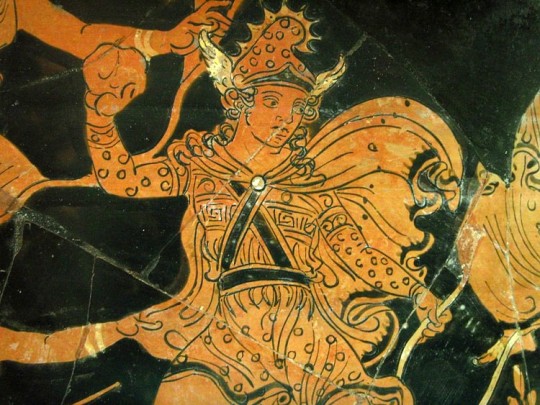
Orpheus
Orpheus is a figure from ancient Greek mythology, most famous for his virtuoso ability in playing the lyre or kithara. His music could charm the wild animals of the forest, and even streams would pause and trees bend a little closer to hear his sublime singing. He was also a renowned poet, travelled with Jason and the Argonauts in search of the Golden Fleece, and even descended into the Underworld of Hades to recover his lost wife Eurydice. Orpheus was seen as the head of a poetic tradition known as Orphism where, according to some scholars, adherents performed certain rituals and composed or read poems, texts, and hymns, which included an alternative view of humanity's origins. Orpheus is widely referenced in all forms of ancient Greek art from pottery to sculpture.
Family
Orpheus had an excellent musical pedigree as his mother was the Muse Calliope and he learnt his great skills from his father the god Apollo, the finest musician of them all. Orpheus' mortal father was generally considered to be King Oeagrus (or Oiagros) of Thrace, where the Greeks believed the lyre also came from. Orpheus' brother was the unfortunate Linos (Linus) of Argos, the inventor of rhythm and melody, and the kithara teacher of Hercules, who was killed by his famous pupil after he over-chastised the hero. Orpheus also passed on his musical skills, notably tutoring King Midas, the mythical king of Phrygia whose touch changed everything into gold. In some myths, Orpheus had a son, Leos who was regarded as the founder of the Athenian Leontids.
Continue reading...
85 notes
·
View notes
Note
Someone pointed out that this was flat out wrong! So I researched before I posted this time ahaha. So I will just provide the sources and let them speak for themselves.
Here are the sources on Thamyris's story:
“Linus also, who was admired because of his poetry and singing, had many pupils and three of greatest renown, Heracles, Thamyras, and Orpheus. Of these three Heracles, who was learning to play the lyre, was unable to appreciate what was taught him because of his sluggishness of soul, and once when he had been punished with rods by Linus he became violently angry and killed his teacher with a blow of the lyre. Thamyras, however, who possessed unusual natural ability, perfected the art of music and claimed that in the excellence of song his voice was more beautiful than the voices of the Muses. Whereupon the goddesses, angered at him, took from him his gift of music and maimed the man, even as Homer also bears witness when he writes: There met the Muses Thamyris of Thrace And made an end of his song; and again: But him, enraged, they maimed, and from him took the gift of song divine and made him quite forget his harping.” -- Diodorus Siculus
“And Dorion, famed for Thamyris' disgrace, Superior once of all the tuneful race, Till, vain of mortals' empty praise, he strove To match the seed of cloud-compelling Jove! Too daring bard! whose unsuccessful pride The immortal Muses in their art defied. The avenging Muses of the light of day Deprived his eyes, and snatch'd his voice away; No more his heavenly voice was heard to sing, His hand no more awaked the silver string.” -- The Iliad of Homer Homer
“At Thebes he views the shields of those who died at the Battle of Leuctra, the ruins of the house of Pindar and the statues of Hesiod, Arion, Thamyris and Orpheus in the grove of the Muses on Helicon, as well as the portraits of Corinna at Tanagra and of Polybius in the cities of Arcadia.”
“The river is said to have got its name from Thamyris throwing (ballein) his lyre away here after his blinding. He was the son of Philammon and the nymph Argiope, who once dwelt on Parnassus, but settled among the Odrysae when pregnant, for Philammon refused to take her into his house. Thamyris is called an Odrysian and Thracian on these grounds. The watercourses Leucasia and Amphitos unite to form one stream.”
“Homer states that the misfortune of Thamyris took place here in Dorium, because he said that he would overcome the Muses themselves in song. But Prodicus of Phocaea, if the epic called the Minyad is indeed his, says that Thamyris paid the penalty in Hades for his boast against the Muses. My view is that Thamyris lost his eyesight through disease, as happened later to Homer. Homer, however, continued making poetry all his life without giving way to his misfortune, while Thamyris forsook his art through stress of the trouble that afflicted him.”
-- Pausanias
“Clio fell in love with Pierus, son of Magnes, in consequence of the wrath of Aphrodite, whom she had twitted with her love of Adonis; and having met him she bore him a son Hyacinth, for whom Thamyris, the son of Philammon and a nymph Argiope, conceived a passion, he being the first to become enamored of males. But afterwards Apollo loved Hyacinth and killed him involuntarily by the cast of a quoit.43 And Thamyris, who excelled in beauty and in minstrelsy, engaged in a musical contest with the Muses, the agreement being that, if he won, he should enjoy them all, but that if he should be vanquished he should be bereft of what they would. So the Muses got the better of him and bereft him both of his eyes and of his minstrelsy.”
Below is from the footnotes for this passage.
“This account of Thamyris and his contest with the Muses is repeated almost verbally by Zenobius, Cent. iv.27, and by a Scholiast on Hom. Il. 2.595. As to the bard’s rivalry with the Muses, and the blindness they inflicted on him, see Hom. Il. 2.594-600; compare Eur. Rh. 915ff.; Scriptores rerum mythicarum Latini, ed. Bode, i. (First Vatican Mythographer 197). The story of the punishment of Thamyris in hell was told in the epic poem The Minyad, attributed to Prodicus the Phocaean (Paus. 4.33.7). In the great picture of the underworld painted by Polygnotus at Delphi, the blind musician was portrayed sitting with long flowing locks and a broken lyre at his feet (Paus. 10.30.8.” --
Apollodor & Pseudo-Apollodorus
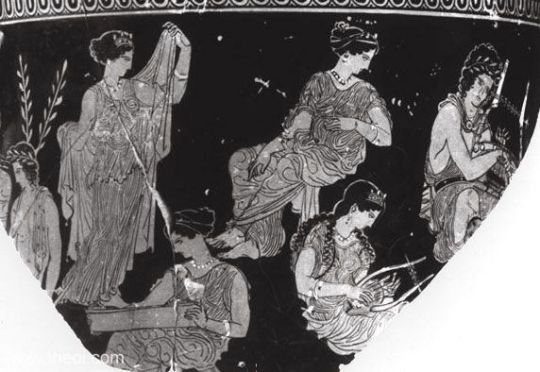
Detail of the Muses from a painting depicting the mythical poets Thamyris and Musaeus beng instructed by the god Apollo. Calliope stands to the left with a raised veil, Sophia is seated with a box, Polyhymnia plays a lyre, and Urania gazes at the god. The names of all the figures are inscribed on the vase.
Found at the National Archeology Museum in Athens.
--
theio.com
Hi!! I'm a teen writer who's writing a book on Hyacinthus and Apollo, and I couldn't find ant sources who didn't give any information I didn't know.
You seem to know more than me, and I have a question.
Did Apollo pretend to be a mortal when he first met Hyacinthus?
And what else do you know about the myth?
It would help me out so so much and I'd he really grateful<33
apollo didn't pretend to be mortal, as i know i just thought it would be nice in my fic 😅
but i remember i once read somewhere that some mortal was intrested in hyacinthus (while hyacinthus and apollo were togeter), and the man died or something? i think he was also a poet? (well, i looked for the story. the muses took out his eyes)
i don't think there's much information about this story (i'll be glad if someone here knows more than me and can add)
but thank you for asking me, it made me really happy :)
#greek mythology#apollo and hyacinthus#apollo#greek myth#greek gods#thamyris#i actually adore Greek Myths about the gods destroying people for their hubris#they are always so poetic and representative#thamyris losing his eyes so he cannot write music or see his lyre#Thamyris boasting against the ones that gave him his song#then losing his ability for it#that's powerful creation#sorry if this is too long#I just wanted to correct my misinformation#I think I passed a headcanon off as canon#yuck
43 notes
·
View notes
Text
Kalliope/Calliope Asteroid #22
Hey Friends!
This is the first post in our Greek Muse Asteroids Series, and we are excited to share the mythology, general meaning, and astro observations with you all! We are starting with the "leader of the muses," Calliope. Her asteroid is number 22, which corresponds to spirituality and is a master number in numerology. Let's get into who Calliope is and what this asteroid indicates!
*Please do not copy, redistribute, or alter and claim our work as your own. We work really hard on our content, so please be considerate and credit us for the time, effort, knowledge, and love we put into our posts. All of our astrology posts are for entertainment purposes only (we aren't licensed in things like medicine or psychology so we legally have to put this here) and as such should be taken as they resonate, and not as legal, medical, or any form of health advice. Not everything will fit with you exactly with astrology in every situation, so please be discerning about what feels right for you. 💜 *
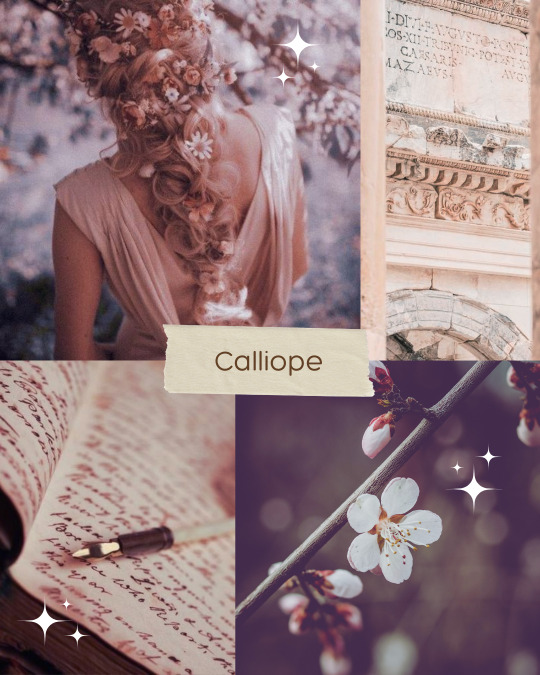
Calliope
Muse of: Epic Poetry, Eloquence Other associations: Singing, Leadership Other Names: Kalliope
Mythology: Calliope (also spelled Kalliope) is the muse of epic poetry and eloquence. She is the oldest of the nine greek muses and is also often called their leader. She is said to have a beautiful voice, and to have been graced with singing talents. According to Hesiod she was also the wisest, and most assertive muse. Her symbol is the Lyre, which is a stringed musical instrument, similar to a harp. She is often depicted with a writing tablet, a roll of paper, or a book in her hand. She also usually wears a golden crown, and is shown with her sisters or her children (in some cases.) She was married to Oeagrus, the King of Thrace in some stories, and is often said to be the mother of Orpheus and Linus. There is also a famous story in which she had a singing match with the daughters of Pierus, the King of Thessaly. It is said that they challenged her thinking they would win, but they did not. Their punishment for losing after challenging Calliope was being turned into magpies. (A type of song bird.)
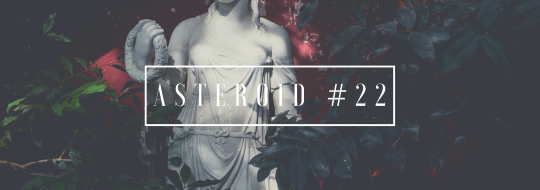
Asteroid Kalliope #22
This asteroid can indicate talents in writing, specifically in poetry or the fictional category. It can indicate someone who really has a way with words, and who may have a pleasant or harmonious voice. People with this strongly and positively aspected may be able to command the room with their voice, or people may listen to them (and their innate wisdom) very intently. Depending on the placements it can indicate someone who is an inspiration for someone else's poetry, song lyrics, or music. (This is something you can see in synastry or the composite chart between two people.) Prominent placements can show someone who is wise, or who is a great leader or teacher of some sort. There may also be indications of someone who is very assertive. However, hard aspects may show someone who is more reserved or struggles with assertiveness. It can show someone with a love of novels, epic poetry, mythology, and other forms of creative writing. Career wise it can show someone who would excel in journalism, research, documentation, making documentaries, technical writing, astrology, painting, or art. It can be seen prominently in the charts of some Librarians and Teachers as well. With it's correspondence to angel number 22 it may also indicate someone who is interested in spirituality or philosophy, as well as someone who seeks balance and justice in the world.
Asteroid Observations
✨ Kalliope in Libra, Gemini, or Virgo can indicate someone who enjoys writing or reading. It can also indicate someone who is very wise or intelligent beyond their years. These people may enjoy getting lost in novels, or they may really embody the academic aesthetic. They could be really into reading stories or writing about justice, or the human condition. They may be collectors of books, and you may often see books, art supplies, instruments, etc. in their environments. (Dark academia lovers unite!)
✨ Kalliope in Aries or positively aspecting Mars can indicate someone who is very assertive or creative. These people may make really great leaders, or have a very commanding presence, especially if Kalliope is conjunct or positively aspecting the Ascendant. They may really embody someone who naturally seems to be gifted with words, a beautiful voice, or leadership capabilities. It can even seem as though sometimes people follow them blindly into things.
✨ Kalliope in a Cancer, Scorpio, or Pisces, or in the 4th, 8th, or 12th houses can indicate someone who uses creative writing, poetry, or music (usually in the form of lyrics) to process their emotions. These people may also use their emotions to write or create a lot. There are a lot of musicians who are talented with lyricism that have these placements in their charts. It's the same if this asteroid is conjunct the moon or Neptune.
✨ Kalliope in Scorpio, the 8th house, or conjunct/aspecting Pluto can indicate someone who can use writing, reading, or the arts to transform themselves or others. These placements or aspects may show someone who also likes to keep their talents somewhat hidden or use them only in the safety of their own space. You may never know that these people have a talent in writing. Poetry may be a specific strong talent for these types.
✨In Aquarius, the 11th house, or aspecting Uranus can indicate someone who is able to use their voice to lead in social causes. It can also indicate someone who loves technical writing, who is popular for their writing or creative talents, or who is able to easily establish non-profit, or organizations supporting causes.
✨ In Capricorn, the 10th, aspecting Saturn, or Aspecting the Midheaven can indicate someone who writes for work or who uses their writing or voice for work. Potentially someone who is famous for their voice. Singers and authors may have these placements. It can also indicate someone who is able to lead a company or who is a manager or in a higher up position where they work. They may also be someone who starts their own creative business. I could see someone owning a stationary store, or a book store with these placements.
✨ Kalliope in Sagittarius, in the 9th house, or conjunct Jupiter can indicate someone who is very wise. This is a place where you can see someone who is a librarian or teacher. The 3rd house and Gemini can indicate a teacher as well, but Sagittarius, the 9th, and Jupiter can indicate higher learning, so it gives off the professor type of vibe. These placements can also indicate an affinity for astrology, psychology, and mythology. These placements can also show someone who writes stories or poetry based on travel experiences. People who make documentaries or who write about other cultures and philosophies besides their own can have these aspects and placements prominent in their chart.
✨ In Libra or the 7th house can indicate someone who really loves academia aesthetic. Their home or their style may look like a library, or it may look very put together and beautiful. Generally this placement is wise, and is very balanced when it comes to their writing or communicating. They may really like classical style, greek mythology style. (Think like...white columns, sistine chapel, classic beauty...) They are also prone to enjoying romance novels, and may be really good at writing in the romance genre themselves. Libras are usually naturally drawn to being writers, so this may add a little extra dose of interest there. These types may also make really good lawyers or judges because they are gifted with communication skills centered around balance and fairness. They can easily explain and help others understand morals.
✨ This asteroid in Pisces, the 12th, or conjunct Neptune can indicate someone who may not see their natural talents in writing, singing, speaking, lyricism, music, or art, but who is very very talented in these areas. These people may find comfort in journaling, painting, or writing for their own pleasure. Creative writing and writing music may be really big hobbies for these people. You may see some people with these placements use music or books as a way to escape their daily life. They can get lost in these hobbies when they need a break from reality. They may have a tendency to be more shy when it comes to their talents, and they may never share the things they create in private, but if they do people will notice.
✨ In the 6th house, or in Virgo this can show someone who has a lot of wisdom, and may use writing or music to help others. They may read a lot of books and gain a lot of knowledge. Generally they may be shy to share, and there's a possibility they give off the shy girl next door vibes (although this also depends on what else is in your chart.) An idea of what types of things this placement would write: Cookbooks, medical journals, plant encyclopedias, etc. Think earthy academia. They also may have a knack for poetry, or for communicating thoughts in creative ways that others easily understand. They may be prone to using metaphors. (Virgo is traditionally ruled by Mercury.)
✨ In Leo, the 5th, or aspecting the sun can indicate someone who is famous for writing, their voice, or their artistic talents. This person may get noticed easily when it comes to what they choose to write about. Creative writing, fiction novelists, and lyricists can be indicated here. Some celebrities that sing or give speeches can be seen with these placements.
✨ Gemini or the 3rd house can show someone who is quick and has a great sense of humor. They could be comedians, as their voice is easily heard. They also could be someone who enjoys teaching children, or who is able to create easy to understand and aesthetically pleasing online content. These placements can indicate someone who may make a good teacher. Because Gemini is one of the two signs ruled by Mercury, communication comes easily to them. They may also have a pleasant voice, and could give ted talks or be able to lead a marketing team, or speak at conferences. (Cute side note they could be great narrators, especially for children's books.)
✨ In Cancer or the 4th house, or positively aspecting the moon or the IC, can show someone who is the leader in their family. They may also really love to have their home be a place of learning and creativity. They may own a huge collection of books or art supplies. They may also encourage their loved ones or children to be more creative, or to be more assertive. They may really love visiting libraries and museums, and they might like to have classical music playing in their home. The moon is associated with emotions, the home, and nurturing, and this can indicate someone who enjoys poetry, music, and storytelling as a self care tool. They may read books to help them ground, or they may listen to music as a way to get out of their heads. These placements can indicate someone who finds safety in books, novels, music, or art.
✨ In Taurus or the 2nd house can show someone who values literature, the arts, and teaching. It could also be someone who earns money from the things associated with Kalliope, or someone who has a more eclectic "academia" aesthetic to their home or surroundings. They may also be someone who likes to buy hardcover books, instruments, or stationary. This is extra true if there are positive aspects to Venus.
✨ Hard aspects between Kalliope and mercury may show someone who has difficulty in expressing themselves through writing, or someone who may have difficulties with reading or with learning. They may have more misunderstandings when texting or messaging than other people do. In some cases this aspect can make it difficult for the native to speak or to communicate in general.
✨ Hard aspects to the sun can show someone who doesn't feel as in touch with their creative side, or who may feel that writing and reading are not really their thing. They may not like their voice, or have trouble being assertive. They can also come off more shy depending on other placements. They are more likely to stifle their voice, or to shy away from any writing, music, or vocal talents. They also might not feel like they have the capability to be a leader sometimes.
✨ Hard aspects to the moon can show insecurity in writing, music, lyricism, assertiveness, or a struggle with desire for these types of things. Either the native isn't interested in the things associated with this asteroid at all emotionally, or they are interested but don't have confidence in their talents or gifts. They may be very hard on themselves when it comes to their voice as well. Example: If a singer has this they may always feel like their voice isn't good enough, or deep down have an insecurity about their talent, even if they seem confident on the outside.
✨ Conjunct the descendant can show someone who seeks a partner that is assertive, or who is a great leader. They may gravitate towards people who have beautiful or unique voices, singers, musicians, writers, or teachers. This is also a sign that these natives can use writing, singing, lyricism, art, or music as a form of self care, or to express love to themselves or others.
✨ In synastry if your Kalliope asteroid is conjunct any of the other person's planets, especially the moon or Venus, it can indicate the other person seeing you as a muse or as inspiration in general. They may really love your voice or the way you talk. They could also find you interesting to listen to or compelling, just by you being yourself. You may also find this person to be a muse in the topics related to the planet Kalliope touches. If your asteroid touches their Venus you may be inspired to write about their looks, aesthetic, or your experience with the way they love/your partnership with them.
----------------------------------------------
We hope you enjoy Kalliope and find out a little more about yourself and how she influences astrology! Don't worry if this asteroid isn't prominent, even if you love any of these things. There are lots of other placements in your basic astrology, as well as other asteroids, that can indicate an interest or talent in the same areas as Kalliope. If you aren't interested in these things then it may just not be a prominent placement for you, or you may not have unlocked those passions or talents yet. Regardless: take what resonates. Let us know what you think and how this asteroid feels for you in the notes, and check out the other Muses once they are posted!

#Calliope#Kalliope#22#Asteroid#Asteroids#Asteroid 22#Kaliope Asteroid#Astrology#Astro#Astro observations#Astrologer#Asteroid astrology#astrology interpretations#greek muses#greek mythology#the 9 muses#muses#nine muses
695 notes
·
View notes
Text
Percy’s Half Siblings
Triton - Son of Amphitrite and Poseidon - Poseidon’s messenger and herald
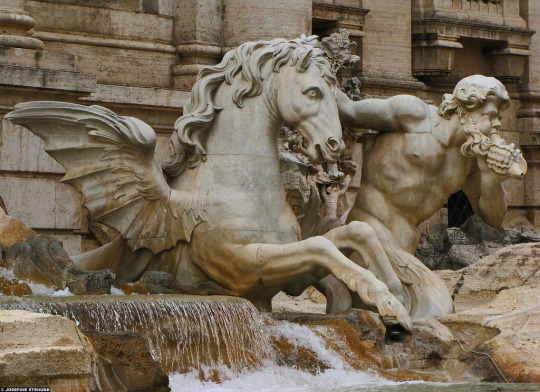
Benthesikyme - “Wave of the Deep” or “Lady of the deep swells” - Goddess of waves - Daughter of Amphitrite and Poseidon
Rhode - goddess and personification of the island of Rhodes. Wife of Helios. Daughter of Amphitrite and Poseidon
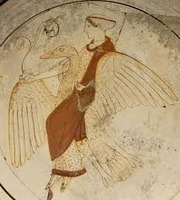
Antaeus - Son of Poseidon and Gaea - Half Giant
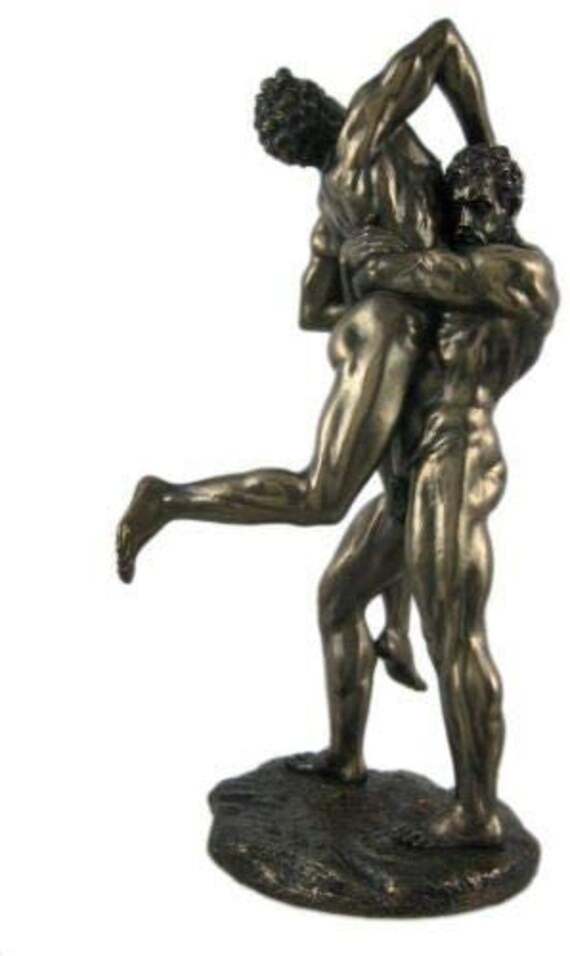
(Heracles killing Antaeus)
Charybdis - daughter of Poseidon and Gaea (in some sources) she was a loyal child to Poseidon but since she kept covering land with water for him Zeus got mad and chained her to the sea floor, cursing her and turning her into a “bladder” and made her thirsty for seawater, which when she drank it, caused whirlpools.
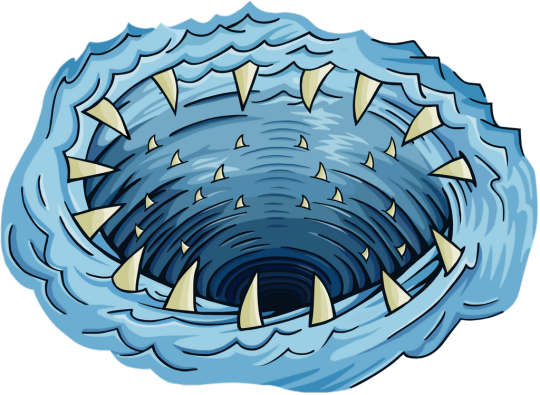
https://www.deviantart.com/c00lfr0g/art/Charybdis-388499917
Laestrygon - Son of Poseidon and Gaea, father of Telepora (wife of Aeolus) possible parent/creator of the Laitsrygonians.
Despoina - Daughter of Poseidon and Demeter - Goddess of Arcadian Mysteries/Veiled - born when poseidon went after demeter when both were horses.
Arion - Supernatural Horse (not sure if he’s a deity or just immortal creature) - Son of Demeter and Poseidon born when poseidon went after demeter when both were horses.
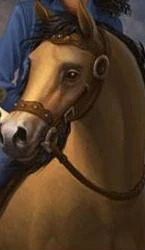
Pegasus - immortal winged-horse, Son of Poseidon and Medusa (or just sprang from Medusa’s blood when Perseus beheaded her)
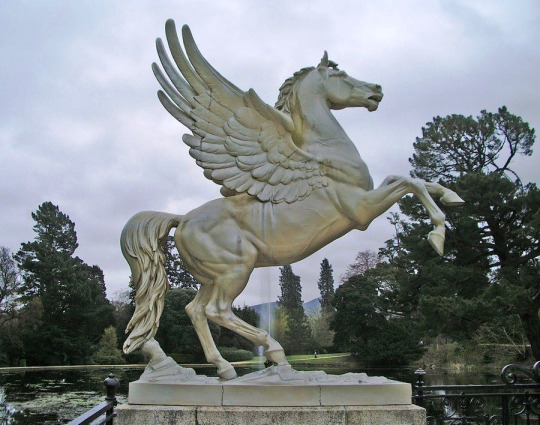
Chrysaor - Son of Poseidon and Medusa - "he who has a golden sword" - might be the father of Echidna
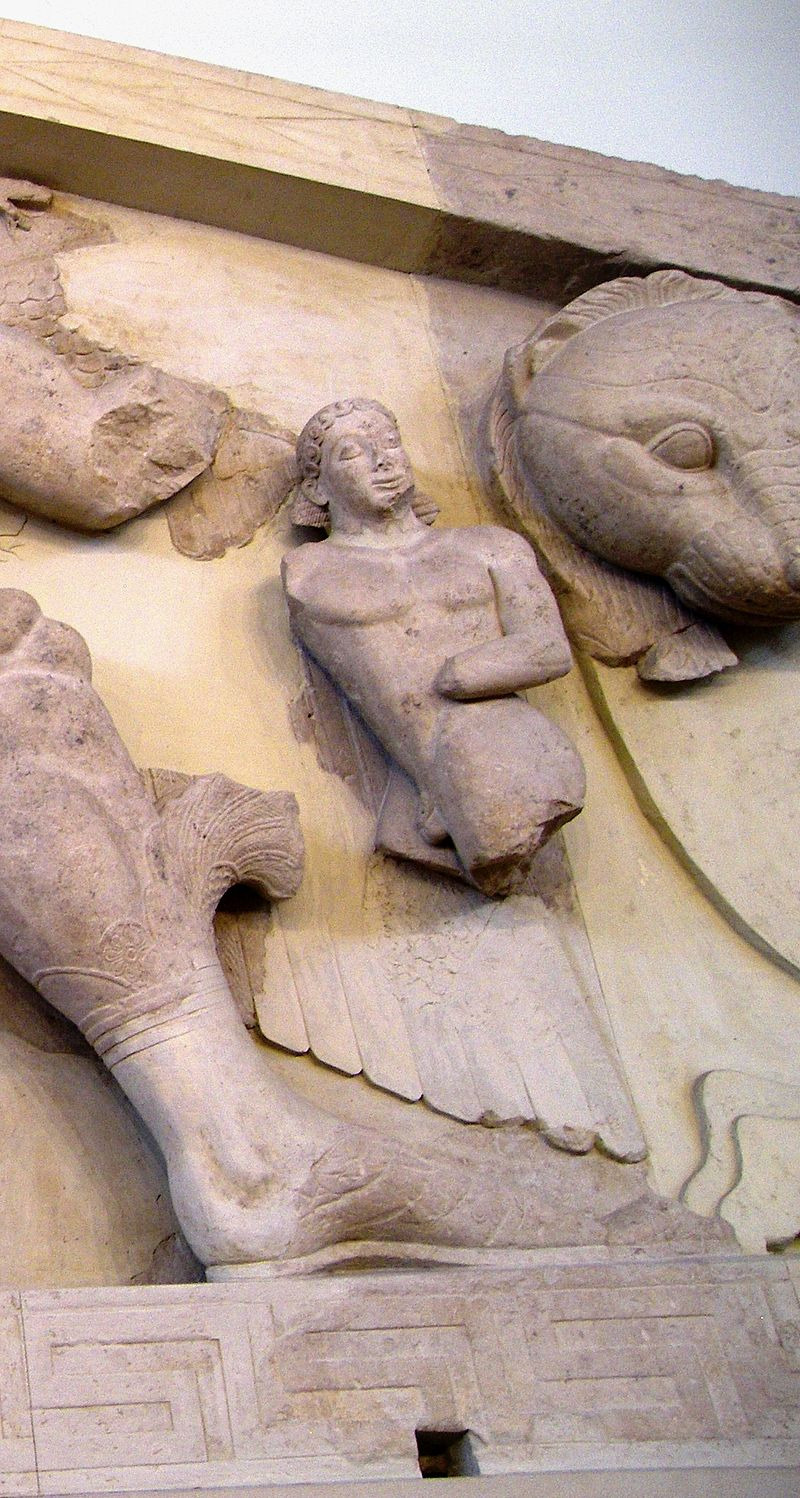
Herophile -Sea-nymph, Daughter of Poseidon and Aphrodite, possibly a Delphic Sybil
Ergiscus - son of Poseidon and Aba (a naiad), the city of Ergisce in Istanbul was named after him.
Aethusa - Daughter of Poseidon and Alcyone (a pleiad) - caught Apollo’s eye and had two kids with him Eleuther and Linus- ancestor of Orpheus.
Hyrieus - Son of Poseidon and Alcyone (a pleiad) - possible father of Orion, most account call him a king of various places. (Boeotia, Thrace or Chios)
Hyperenor - son of Poseidon and Alcyone
Hyperes - son of Poseidon and the Pleiad Alcyone He was the father of Arethusa, mother of Abas by Poseidon. Founded the city of Hyperea.
Anthas - Son of Poseidon and Alcyone, founder of Anthea
Abas - son of Poseidon and Arethusa (yes his own granddaughter). Abas founded a tribe known as the Abantians or Abantes. He reigned over them as king. Possibly killed by his own grandson.
Halirrhothius - Son of Poseidon and Euryte or Bathycleia. He was killed by Ares for raping his daughter Alcippe.
Chrysomallos - Son of Bisalpis or Bisaltis or Theophane - Golden winged ram, rescued some people, was them sacrificed to Zeus and skinned.
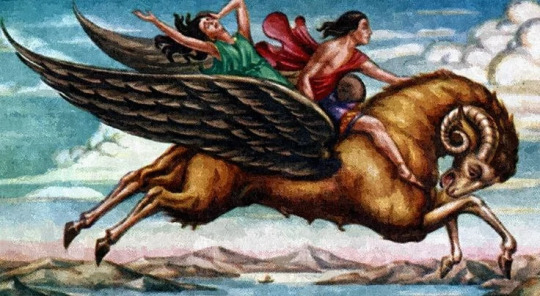
Minyas - Son of Poseidon and somebody (there was a very long list of potential moms) a city founder.
Lycus - son of Poseidon and Celaeno, one of the Pleiades. Together with his brother Eurypylus, they ruled over the Isles of the Fortunate which their father blessed.
Nycteus - (possibly a son of Poseidon and Somebody) - King of Thebes
Eurypylus - Son of Poseidon and Celaeno, either ruled over the isles of the blessed with lycus or was a king of cyrene
Asopus - possibly a son of Poseidon, a river deity
Parnassus - unkown
Eumolpus - possibly a son of Poseidon and Chione - King of Thrace
Phaeax - Son of Poseidon and Korkrya - from whom the Phaeacians derived their name.
Eirene - daughter of Poseidon and Melantheia - gave her name to an island.
Amykos - Son of Poseidon and Melia - a king who would force people to box with them so he could kill them. Challenged the best of the Argonauts Polydueces, who killed him with a blow on the elbow.
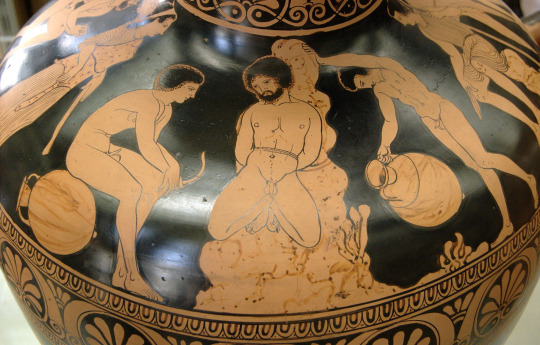
Mygdon - Son of Poseidon and Melia, also a king, killed by Heracles on his way to his ninth labour.
Aspledon, a son of Poseidon and the nymph Mideia, a city in Boetia was named after him.
Astacus - son of Poseidon and the nymph Olbia, eponymous founder of Astacus, Bithynia.
Leches - son of Peirene and Poseidon, who was abducted by Poseidon. (squinty eyes at you mr. no-consent)
Evadne - daughter of Poseidon and Pitane who was raised by Aepytus of Arcadia. She fell in love with Apollo and of course got pregnant, the pregnancy was discovered by Aepytus, he was furious and left to consult the Oracle of Apollo. During the childbirth, Apollo sent Eileithyia and the Moirae to assist his lover and ease her pain. Evadne gave birth in the wilderness and left the child, Iamus, exposed to the elements. Five days later, Aepytus returned from the Delphi, where he had been told by Apollo's Oracle that Evadne's child was indeed the son of Apollo and destined to be a gifted prophet. He demanded that the child be brought to him, and so Evadne retrieved Iamus from the patch of violets where she had left him. Iamus had been nurtured for those five days by the honeybees that were sent by Apollo, or by the Fates. Evadne named the child Iamus (“Boy of the Violets”) He went on to found the Iamidae, a family of priests from Olympia.
Phocus - son of Poseidon and Pronoe
Ogyges - maybe a son of Poseidon or a Titan - ruler in ancient Greece, generally of Boeotia, but an alternative tradition makes him the first king of Attica.
Achaeus was the son of Poseidon, the god of the sea and Larissa, daughter of Pelasgus, the son of Triopas, meaning he is of Argive descent through his mother's parentage. He is the brother of Phthius and Pelasgus.
Actor, the Epean son of Poseidon and Agamede, daughter of King Augeas. He was the brother of Belus and Dictys.
Bellerophon - was a divine Corinthian hero of Greek mythology, the son of Poseidon and Eurynome, and the foster son of Glaukos. He was "the greatest hero and slayer of monsters, alongside Cadmus and Perseus, before the days of Heracles". Among his greatest feats was killing the Chimera. Bellerophon was also known for capturing and taming the winged horse Pegasus with the help of Athena's charmed bridle, and earning the disfavour of the gods after attempting to ride Pegasus to Mount Olympus.
Eurypylus of Cos - was the son of Poseidon and Astypalaea or Mestra.He was the husband of Clytie and father of Chalciope, Chalcon and Antagoras.
Calaurus - was the eponym of the island of Kalaureia near Troezen. He was the son of Poseidon
Delphus was said to be the son of Poseidon and Melantho, daughter of Deucalion (Though also could be the son of Apollo). He was from whom the town of Delphi was believed to have derived its name.
Elasippus, one of the ten sons of Poseidon and Cleito in Plato's myth of Atlantis. Elasippus, along with his nine siblings, became the heads of ten royal houses, each ruling a tenth portion of the island, according to a partition made by Poseidon himself, but all subject to the supreme dynasty of Atlas who was the eldest of the ten.
Geren was the eponym of the town of Geren in Lesbos. He was the son of Poseidon.
Hippothoon was the son of Poseidon and Alope, Cercyon's daughter. Hippothoon is a figure in Greek mythology, often described as the King of Eleusis, succeeding to the throne after the death of Cercyon. He is the Attic hero and the eponym of the Athenian phyle called Hippothoontis. Although Cercyon had Alope buried alive, Poseidon turned her into the spring, Alope, near Eleusis. Hippothoon was stated to be present in the missions of Triptolemus and was mentioned along with Eumolpus as an Eleusinian hero who was worshiped according to honorary decrees dating to the 4th century BC. According to Pausanias, a heroon was dedicated to him for worship by hereditarily assigned priests.
Kymopoleia - was a daughter of sea god Poseidon and the wife of Briareus, one of the three Hundred-Handers.
Lamia - was a daughter of Poseidon, and mother, by Zeus, of the Libyan Sibyl.It was perhaps this Lamia who, according to Stesichorus, was the mother of Scylla.
Megareus was king of Onchestus in Boeotia. In some myths, he was the eponymous king of Megara. Megareus was either son of Poseidon and Oenope, daughter of Epopeus, or of Onchestus (eponym of their kingdom),or of Apollo or of Aegeus,or of Hippomenes.
Nauplius,son of Poseidon by Amymone, daughter of Danaus. This Nauplius was reputed to have been the eponymous founder of Nauplia (modern Nafplion) in Argolis,and a famous navigator who discovered the constellation Ursa Major (Great Bear).
Palaestinus was a son of Poseidon and father of Haliacmon. From grief at the death of his son, Palaestinus threw himself into the river, which was called after him Palaestinus, and subsequently Strymon.
Sarpedon, a Thracian son of Poseidon, eponym of Cape Sarpedon near the outlet of the River Hebrus, and brother to Poltys, King of Aenus. Unlike the other two Sarpedons, this Thracian Sarpedon was not a hero, but an insolent individual who was shot to death by Heracles as the latter was sailing away from Aenus.
Taenarus, son of Poseidon.
#percy jackson#poseidon#Triton#Benthesikyme#Rhode#Antaeus#Charybdis#Laestrygon#Desponia#Arion#Pegasus#Chrysaor#Herophile#Ergiscus#Aethusa#Hyrieus#Hyperenor#Hyperes#Anthas#Abas#Halirrhothius#Chrysomallos#Minyas#Lycus#Nycteus#Eurypylus#Asopus#Parnassus#Eumolpus#Phaeax
70 notes
·
View notes
Text

Calliopé enseignant la musique au jeune Orphée - Calliope teaches Music to the young Orpheus (1865) "Oil on canvas, 100 x 104 cm" [Musée d'art et d'archéologie du Périgord, Périgueux, France] -- Auguste Alexandre Hirsch (French; 1833 - 1912). In Greek mythology, Calliope is the Muse who presides over eloquence and epic poetry; so called from the ecstatic harmony of her voice. Hesiod and Ovid called her the "Chief of all Muses". Calliope had two famous sons, Orpheus and Linus,[3] by either Apollo or King Oeagrus of Thrace. She taught Orpheus verses for singing.
93 notes
·
View notes
Text

Another day, another post about an asteroid named after mythology. Like I said in my last post, I am going to be covering the asteroids named after the Nine Muses in numerical order based on their minor planet designation (i.e. the name number combo I've been using at the top of all my posts on the asteroids). I hope you enjoy this post.
Calliope is a goddess in Greek (and later Roman) mythology, described as being one of the nine muses, regarded as the eldest. She is the daughter of Zeus and Mnemosyne and the mother of Orpheus and Linus, by either Apollo or King Oeagrus of Thrace. Kalliope is commonly cited as the Muse of Epic Poetry, but was once also regarded as the Goddess of Eloquence. It was said that she defeated the daughters of Pierus in a singing contest and turned them into magpies. It is also said that, when Orpheus was dismembered by the Bakkhantes, she recovered his head and enshrined it on the island of Lesbos. Calliope is commonly portrayed as holding a writing tablet and stylus or a scroll in her hands, sometimes wearing a gold crown, though in older artwork she is portrayed as holding a lyre. She has a beach named after her in Antarctica (Calliope Beach) and the Calliope hummingbird that is found in North and Central America is as well.
The asteroid Kalliope was discovered by John Russell Hind on the 16th of November, 1852 in London, England. Kalliope has one known natural satellite, Linus (or (22) Kalliope I Linus), which was discovered on the 29th of August, 2001 by Jean-Luc Margot and Michael E. Brown and named after one of Calliope's sons. The asteroid takes roughly 1,814 days to travel around the zodiac, spending roughly 151 days in each sign.
Within my own research into the asteroid, Kalliope can be used to represent the native’s propensity for the awe-inspiring, epic writing ability, their grand tales, persuasiveness, fluency with language, and the greater-than-themselves elements of their life. Remember to check the sign, house, degree, and any aspects Kalliope makes when interpreting this placement. You can also have a look at Kalliope’s persona chart if you feel confident enough.
#asteroid#asteroid 22#22 Kalliope#astrology#astroblr#natal chart#asteroids in astrology#sorceressofthenight
39 notes
·
View notes
Text
"I'm unholy."
"So some people say."
Lucy's face scrunched up as if he was thinking hard. "Arthur?"
"Yes?"
"Did you know your name is a mountain?"
Mr. Parnassus blinked, as if he'd been caught off guard. "I did. How did you know that?"
Lucy shrugged. "I know a lot of things, but I don't always know how I know them. Does that make sense?"
"Sort of."
"Mount Parnassus was sacred to Apollo."
"I know."
"And do you know Linus of Thrace?"
Mr. Parnassus shifted in his seat. "I... don't think so."
"Oh! Well, Apollo killed Linus with his arrows because of a musical contest. Are you going to kill Mr. Baker?" Lucy turned his head slowly to look at Linus. "If you do, can you make sure to use arrows? I don't want him to be un-holey too."
The set up, the execution, absolutely astounding. Got me hook, line, and sinker
#the house in the cerulean sea#tj klune#bookworm#books#books and libraries#lgbt+ books#fantasy#book quotes#adult lgbt books#adult books#adult fantasy
84 notes
·
View notes
Text
Day 18 of 30 Days of Apollon
How does this deity stand in terms of gender and sexuality? (historical and/or UPG)
I believe (UPG) that Apollon would as a protector of youth, protect LGBT+ children along with his sister and mother. Considering that his brother Dionysus was considered between genders and his various other siblings, uncles and father have had lovers of both genders I don’t believe that anyone can say he was against it.
Historically (in myths) he had lovers of both genders. His Lovers included:
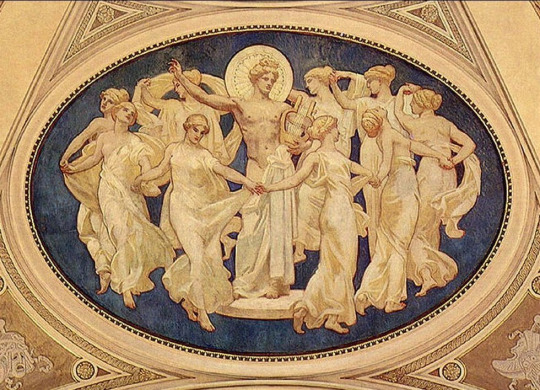
Female lovers
Love affairs ascribed to Apollo are a late development in Greek mythology.[222] Their vivid anecdotal qualities have made some of them favorites of painters since the Renaissance, the result being that they stand out more prominently in the modern imagination.
Daphne was a nymph whose parentage varies. She scorned Apollo's advances and ran away from him. When Apollo chased her in order to persuade her, she changed herself into a laurel tree. According to other versions, she cried for help during the chase, and Gaea helped her by taking her in and placing a laurel tree in her place.[223] According to Roman poet Ovid, the chase was brought about by Cupid, who hit Apollo with golden arrow of love and Daphne with leaden arrow of hatred. The myth explains the origin of the laurel and connection of Apollo with the laurel and its leaves, which his priestess employed at Delphi. The leaves became the symbol of victory and laurel wreaths were given to the victors of the Pythian games.
Apollo is said to have been the lover of all nine Muses, and not being able to choose one of them, decided to remain unwed.[224] He fathered the Corybantes by the Muse Thalia,[225]Orpheus by Calliope, Linus of Thrace by Calliope or Urania and Hymenaios(Hymen) by either Terpsichore or Clio or Calliope.[226]
Cyrene, was a Thessalian princess whom Apollo loved. In her honor, he built the city Cyrene and made her its ruler. She was later granted longevity by Apollo who turned her into a nymph. The couple had two sons, Aristaeus, and Idmon.
Evadne was a nymph daughter of Poseidon and a lover of Apollo. She bore him a son, Iamos. During the time of the childbirth, Apollo sent Eileithyia, the goddess of childbirth to assist her.
Rhoeo, a princess of the island of Naxos was loved by Apollo. Out of affection for her, Apollo turned her sisters into goddesses. On the island Delos she bore Apollo a son named Anius. Not wanting to have the child, she entrusted the infant to Apollo and left. Apollo raised and educated the child on his own.
Ourea, a daughter of Poseidon, fell in love with Apollo when he and Poseidon were serving the Trojan king Laomedon. They both united on the day the walls of Troy were built. She bore to Apollo a son, whom Apollo named Ileus, after the city of his birth, Ilion (Troy). Ileus was very dear to Apollo.[227]
Thero, daughter of Phylas, a maiden as beautiful as the moonbeams, was loved by the radiant Apollo, and she loved him in return. By their union, she became mother of Chaeron, who was famed as "the tamer of horses". He later built the city Chaeronea.[228]
Hyrie or Thyrie was the mother of Cycnus. Apollo turned both the mother and son into swans when they jumped into a lake and tried to kill themselves.[229]
Hecuba was the wife of King Priam of Troy, and Apollo had a son with her named Troilus. An oracle prophesied that Troy would not be defeated as long as Troilus reached the age of twenty alive. He was ambushed and killed by Achilleus, and Apollo avenged his death by killing Achilles. After the sack of Troy, Hecuba was taken to Lycia by Apollo.[230]
Coronis, was daughter of Phlegyas, King of the Lapiths. While pregnant with Asclepius, Coronis fell in love with Ischys, son of Elatus and slept with him. When Apollo found out about her infidelity through his prophetic powers, he sent his sister, Artemis, to kill Coronis. Apollo rescued the baby by cutting open Koronis' belly and gave it to the centaur Chiron to raise.
In Euripides' play Ion, Apollo fathered Ion by Creusa, wife of Xuthus. He used his powers to conceal her pregnancy from her father. Later, when Creusa left Ion to die in the wild, Apollo asked Hermes to save the child and bring him to the oracle at Delphi, where he was raised by a priestess.
Male lovers
Hyacinth or Hyacinthus was one of Apollo's male lovers. He was a Spartan prince, beautiful and athletic. The pair was practicing throwing the discus when a discus thrown by Apollo was blown off course by the jealous Zephyrus and struck Hyacinthus in the head, killing him instantly. Apollo is said to be filled with grief: out of Hyacinthus' blood, Apollo created a flower named after him as a memorial to his death, and his tears stained the flower petals with the interjection αἰαῖ, meaning alas.[231] He was later resurrected and taken to heaven. The festival Hyacinthia was a national celebration of Sparta, which commemorated the death and rebirth of Hyacinthus.
Another male lover was Cyparissus, a descendant of Heracles. Apollo gave him a tame deer as a companion but Cyparissus accidentally killed it with a javelin as it lay asleep in the undergrowth. Cyparissus was so saddened by its death that he asked Apollo to let his tears fall forever. Apollo granted the request by turning him into the Cypress named after him, which was said to be a sad tree because the sap forms droplets like tears on the trunk.
Admetus, the king of Pherae, was also Apollo's lover.[232][233] During his exile, which lasted either for one year or nine years,[234] Apollo served Admetus as a herdsman. Developing a passion for the king there, he herded and fed the cattle, and caused the cows to give birth to twin calves. He would make cheese and serve it to Admetus and was often seen being domestic, causing embarrassment to his family.
Oh how often his sister (Diana) blushed at meeting her brother as he carried a young calf through the fields!....often Latona lamented when she saw her son's disheveled locks which were admired even by Juno, his step-mother...[235]
When Admetus wanted to marry princess Alcestis, Apollo provided a chariot pulled by a lion and a boar he had tamed. This satisfied Alcestis' father and he let Admetus marry his daughter. Further, Apollo saved the king from Artemis' wrath and also convinced the Moirai to postpone Admetus' death once.
Branchus, a shepherd, one day came across Apollo in the woods. Captivated by the god's beauty, he kissed Apollo. Apollo requited his affections and wanting to reward him, bestowed prophetic skills on him. His descendants, the Branchides, were an influential clan of prophets.[236]
Other male lovers of Apollo include:
Adonis, who is said to have been the lover of both Apollo and Aphrodite.[237] Atymnius,[238] otherwise known as a beloved of Sarpedon Helenus, the son of Priam and a Trojan Prince, was a lover of Apollo and received from him an ivory bow with which he later wounded Achilles in the hand.[239] Hippolytus of Sicyon (not the same as Hippolytus, the son of Theseus)[233] Hymenaios, god of marriage hymns (here, the son of Magnes)[240] Iapis Phorbas, the dragon slayer (probably the son of Triopas)[241]
Some of his children such as Orpheus also had lovers of both genders.
I believe (UPG) that Apollon would as a protector of youth, protect LGBT+ children along with his sister and mother. Considering that his brother Dionysus was considered between genders and his various other siblings, uncles and father have had lovers of both genders I don’t believe that anyone can say he was against it.
That said applying sexuality or gender to a God/ess could be a mistake as you are applying human terms on to beings definitely not human, no matter how much they love humanity.
There seems to be a mistaken belief that is floating around that the Hellenic gods champion, patron or are linked to specific sexual identities. Therefore you end up having some members of the LGBT community celebrating certain gods as homosexual deities (examples of this would be Dionysos, Apollon—especially in regards to the Hyakinthos myths, and Artemis, among others), and then you have some heterosexual screaming their heads off that such and such a god isn’t homosexual, and at times even aggressively ignoring the myths (and associated festivals) in which a god appears to be having a homosexual (or in reverse for the other side of the fence…heterosexual) relationship when this was never an issue for the ancient Hellenes. It really is a sign of the modern culture in which we can be so obsessed with sex-identity that we feel a need to *claim* gods as being a part of our own sexual identities.
Yet when it comes right down to it, it doesn’t make sense on either sides of the fence. The gods don’t possesses biological bodies, they don’t possesses chemical hormones, they don’t literally have forms in the way that we think of it….therefore claiming any specific sexual orientation is rather ridiculous. The gods love, they experience attraction through Eros, and the love and union is going to be carried out on a spiritual level. The soul can’t be said to be strictly female or male, for which I think hermaphroditic images is more closely related to our spiritual existance. Truly though when you get right down it to the souls are aligned, in relationship to the gods, with having a receptive nature (therefore being symbolically feminine as we see in the myth of Psykhe) because we desire to receive the union with the gods. Otherwise I must say that we have no spiritual sexual orientation, and we possess many lives in which we may experience life as male or female, and probably a variety of sexual orientations over the course of our lifetimes.
So I would say he is very much for LGBT+ people and he will protect youths (specifically males (cis, trans, etc), while his sister protected female (cis, trans, etc) youths) going through issues pertaining to their gender and sexuality.
#30 days of Apollon#dodekatheism#hellenic polytheism#hellenismos#hellenic pagan#for the love of apollo#for the love of the dodekatheon#ares is great#Hail King Zeus and Queen Hera#hermes is my god#Hades is great too#Hestia is a sweetheart#30 days of deity devotion#30 days of devotion
16 notes
·
View notes
Photo


"Begin thou, unforgetting Clio, for all the ages are in thy keeping, and all the storied annals of the past."
Clio
Indie Clio the goddess of history, writing, and praise
Will RP in AUs and Crossovers.
Open for shipping and open to RPing with all.
(Bio on Blog) and under Read More
General
Full Name: Clio
Epithets: The proclaimer, high-throned, golden, flowering, unforgetting
Age: Appears 26 but is thousands of years old
Occupation: Goddess, writer of history, historian, muse
Orientation: Pansexual
Religion: Ancient Greek Pantheon
Location: Mount Parnassus, Mount Olympus, the Mortal World when she wishes
Social Class: High Upper Class, the royalty of royalty
FC: Emeraude Toubia
Family
Mother: Mnemosyne
Father: Zeus
Sisters: Calliope, Euterpe, Erato, Melpomene, Ourania, Polyhymnia, Terpsichore and Thalia
Half Siblings: Aeacus, Agdistis, Angelos, Aphrodite, Apollo, Ares, Artemis, Athena, Dionysus, Eileithyia, Enyo, Epaphus Eris, Ersa, Hebe, Helen of Troy, Hephaestus, Heracles, Hermes, Lacedaemon Minos, Pandia, Persephone, Perseus, Rhadamanthus, the Graces, the Horae, the Litae, the Moirai
Children: Hymenaios, Hyakinthos (possibly), Linus of Thrace (possibly)
Personality
Qualities: Curious, adventurous, speaks her mind, open-minded, charismatic, altruistic
Flaws: Isn't always tactful, has a penchant for punishing those who wish to spread misinformation
MBTI: ENFJ-A - The Protagonist
Moral Alignment: Lawful Good
Enneagram: Type 8 - The Challenger
Likes: History, big events, famous people
Dislikes: Destruction of knowledge
Biography
Notes: She is a goddess but I will often play her low powered, though if you decide to disrespect her she may hurt you. Unless you are another god you will likely not be able to stop her. But she's not likely to kill.
AS A GODDESS
Clio was born to Zeus and Mnemosyne along with her eight sisters. She grew up on Olympus and quickly became known for her skills in history. Clio who was one of the nine Muses and minor goddesses who entertained the gods on Mount Olympus. Clio was the Muse of History who inspired the development of liberal and fine arts in ancient Greece. Clio was a source of inspiration to poets, dramatists, and authors, such as Homer, who lived in Ancient Greece. Clio was the Muse who represented and was the patron of History and Writing.
Although the Muses were generally believed to be a source of inspiration and of help to mortals they were also vain and arrogant and severely resented any mortals who questioned their supremacy in the arts. The powers of Clio and her sisters were considerable. As goddesses, they were immortal and any mortals that were blessed by the Muses, could use the beauty of their song, or the grace of their dance, to heal the sick and provide comfort to the heartbroken. They also possessed the magical power of transformation.
Clio, as an individual, was rarely identified, although in the Bibliotheca (Pseudo-Apollodorus), the muse is said to have aroused the anger of the goddess Aphrodite, when Clio, had criticised the goddess of beauty for having fallen in love with Adonis. In retribution, Aphrodite would cause Clio to fall in love with a mortal, King Pierus of Pella, the king for whom Pieria was named.
She also might have had a son with Apollo, the god of weddings, Hymenaios.
MODERN TIMES
She has a presence in the mortal realm and acts as a history professor. She focuses on writing histories that are forgotten or the histories that are ignored, and give inspiration to her students to do the same. Much of her writing in modern times focuses on women, lower classes, different ethnicities, queer people, and other minorities that histories have often ignored.
She is still very much involved in Olympus but since she is not as often worshipped (just like all of the gods) and has been focusing on being more present in mortal lives.
1 note
·
View note
Photo

Calliope, The first muse.
also spelled Kalliope, in Greek mythology, according to Hesiod’s Theogony, foremost of the nine Muses; she was later called the patron of epic poetry. At the behest of Zeus, the king of the gods, she judged the dispute between the goddesses Aphrodite and Persephone over Adonis. In most accounts she and King Oeagrus of Thrace were the parents of Orpheus, the lyre-playing hero. She was also loved by the god Apollo, by whom she had two sons, Hymen and Ialemus. Other versions present her as the mother of Rhesus, king of Thrace and a victim of the Trojan War; or as the mother of Linus the musician, inventor of melody and rhythm. Her image appears on the François Vase, made by the potter Ergotimos about 570 BCE.
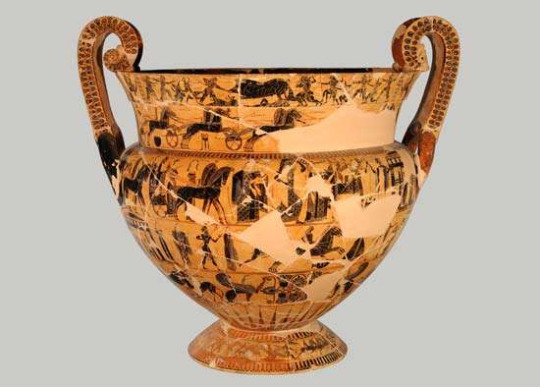
1 note
·
View note
Text

Calliope, Muse of Epic Poetry
Artist: Charles Meynier (French, 1768-1832)
Date: 1798
Medium: Oil on canvas
Location: Cleveland Museum of Art, Cleveland, Ohio, United States
Description
In Greek mythology, Calliope is the muse of epic poetry, eloquence, music, song, and dance. She is the eldest of the nine muses, the daughters of Zeus and Mnemosyne, and is often depicted as their leader. Calliope is known for inspiring great poets throughout history, including Homer, Virgil, Ovid, and Dante Alighieri, and was often called upon for help when they were writing. She is also said to have given the gift of eloquence to kings and princes.
Calliope's name literally means "beautiful-voiced" and she is often depicted in art carrying a writing tablet and stylus, or with a lyre. She is also sometimes depicted with grapes, an aulos (an ancient Greek musical instrument), or panpipes, which may refer to her role as an agricultural goddess.
Calliope is also said to have been the mother of Orpheus, the most famous musician in Greek mythology. In some accounts, she is the daughter of Zeus and Mnemosyne, and has siblings including Euterpe, Polyhymnia, Urania, Clio, Erato, Thalia, Terpsichore, and Melpomene. She may also have had two sons with the god Apollo, Hymen and Ialemus, and may have been the mother of Rhesus, king of Thrace, or Linus, the inventor of melody and rhythm.
Calliope first appeared in Greek mythology around 700 BCE in Homer's The Iliad and continued to appear until around the ninth century.
#greek mythology#mythological art#mythological painting#calliope#muse#muse of poetry#muse of eloquence#muse of song#charles meynier#french painter#landscape#rock#white gown#greek muse#trumphet#clouds#mythological character#oil on canvas#fine art#oil painting#artwork#french culture#french art#european art#18th century painting#cleveland museum of art
6 notes
·
View notes
Text
Future Plot: Project Prometheus - Chapter 4 Part 1
Sandra Syer Gatz-ling Cassius belongs to me
Camille, andMarina Squidlybelong to @inklingleesquidly
Nebula and Wish belong to @myzzy and @agenttwo
Mysteeri belongs to @dreadangel
Designs of Marina and Wish belong to @teamuntyblue
Emerald and Sapphire (Not in this chapter) belong to @twelvetailedkitsune and @son-of-joy
Celeste belongs to @alpinesquid ))
The banquet that Camille and her friends attended was a typical dinner with the gods Zeus, Hera, Poseidon, and Amphitrite. During that banquet, Zeus and Hera offered what they know about Moros and his whereabouts. According to Hera, Moros has been monitoring in Mount Olympus from below and sending his "acolytes" to major Greek cities where City-States once stood. (i.e.- Athens and Sparta) Zeus tells Camille that she must continue her visits to Morpheus's Dream realm if she wants to find further clues to finding Moros's main location and possible weakness. Zeus also warns Camille about Moros' divine power over everything including the pantheon of Olympus. Camille doesn't keep that warning in mind, believing that Moros is not as strong as he thinks.
The next day, Camille and her party prepare to travel to their next destination.
Nebula decided to remain in Argos to train with Poseidon who is taking her to Triton's home in the ocean. The reason for this is because Poseidon wants Nebula to wield the true trident rather than the Promethean Glass replica. Nebula promises Camille she'll meet up with her once she receives the true Trident of Poseidon.
That only leaves Mysteeri, Sandra, Marina Squidly, Wish, and Jovana in Camille's Party. Camille has Jovana contact Hermes and Iris so that they can ask a champion from Olympus to meet the team at Thrace. Camille calls for Celeste.
In the meantime, Sandra reveals to the party a special honor given by Zeus: his Lightning Bolt. Thus, Sandra is not just the Champion of Heracles but the new Champion of Zeus as well.
"Zeus told me that when the time comes, I can hand this to Camille to deliver a final blow to Moros or whenever she wants to borrow it for a while," Sandra explained,"But he also told me, I have great responsibilities now that wield this."
"I was never told that," Camille commented, "Then again, they were dead by the time I was fighting those Titans."
Sandra changes the subject. "Where shall we go now?"
Camille was going to answer with "Thrace", but soon ended up daydreaming. Morpheus comes to her in this daydream vision, addressing a mistake he made when Camille was personifying Camilla. The real destination is a city called Pimpleia which is modern day Litochoron.
"Pimpleia," Camille answered.
"So we're going north?" Marina Squidly asked.
"What about those Keres that Jovana was fighting earlier?" Sandra asked. "Shouldn't we expect them to be in the way?"
"Obviously, yes," Camille replied, "You expect frequent fighting?"
Sandra puts on her hood, becoming a lioness-headed warrior. When she puts on the hood, her voice changes.
"Yes," Sandra replied, "Everyone is expecting a fight, right?"
"Only if necessary, cowardly lion," Mysteeri teased.
"Okay, that's just plain mean." Sandra looked at Mysteeri.
Mysteeri giggles.
Soon, Nebula and Poseidon approach Camille's party, and both have something for Mysteeri and Sandra.
"Nebby, are you sure you want to go with those two?" Camille didn't want anything bad happening to Nebula.
"Don't worry, we'll keep in touch. Hermes can deliver messages, right?" Nebula isn't changing her mind.
"Well, suit yourself, Nebby." Camille parts her shoulder.
"Before you go, Champions of Hades and Heracles, we got something for you two. My brother told me to give you these." Poseidon and Nebula hand parcels to Mysteeri and Sandra.
Mysteeri opens her parcel, taking out a vial of water. Sandra opens her parcel, taking out a lyre. The two were sort of confused as to why Zeus is giving them these items.
"Champion of Hades, Hermes managed to collect water from the River of Styx and placed it in that vial," Poseidon explained, "A single drop summons the undead." He then looks to Sandra. "Champion of Heracles, Linus taught Heracles to use that lyre until Heracles strangle him for pointing out his mistakes. Play a certain turn from that lyre and it transforms."
Assuming that Hephaestus fused the lyre with some items, Sandra plays a tune and immediately turned the lyre into a bow. Mysteeri looked closely at the water in the vial and sees a few faces teeming inside.
"Cool," Mysteeri complimented.
"We'll have Hermes send a message to Zeus, saying thank you." Sandra changes the bow back into a lyre.
"Are you kidding? We can tell him ourselves before we leave," Mysteeri argued.
((At this point of the chapter, the narration is by Zeus. ))
There is nothing interesting in Pimpleia anymore. It may be Orpheus's hometown and it's close to Mount Olympus, but it's just a city with no significant connection to its Ancient Greek roots other than the name. But there is a place there that I can suggest staying at the Bath of Zeus.
It's probably forgotten by the city and all of Greece, but I'm probably one of the only few who knows it's location. I haven't visited the place for some time, but despite the many mortals that discovered it, visited it, and used it, I am giving you access to a cottage I have built near there. My son, Ares, is left to take care of the place.
I'll have Hermes notify him of your arrival.
((End of Narration))
Camille's party made a stop at Mount Olympus to pick up Celeste. Afterward, they head east of Mount Olympus, deciding to head to the Bath of Zeus rather than head to the city of Pimpleia. Marina Squidly and Wish didn't mind the long walk as long as their health is monitored. Later, in the small wilderness of the Epinea valley (or Epineas Gorge), Camille's party had to walk a number of miles to Bath of Zeus. The place was a hidden spring in a rocky gorge, and its waters were supplied by waterfalls from the heights of Olympus. Vegetation has been growing a lot due to isolation and very few visits. There were signs of man-made structures as there were a few side railings and signs, but they have been reclaimed and broken down by nature.
"This is beautiful," Celeste complimented, "I wish I can take Willow here."
"The Humans that lived in this country -- The Greeks -- they believe Zeus bathed here with Hera and those that Zeus fell in love with," Marina lectured, "Even after years of a devastating war and the extinction of the Human race, this place didn't lose its beauty and purity."
"So this was like the site of their honeymoon?" Celeste asked.
"You can say that," Marina Squidly answered.
Camille was leaning against the rails, looking at the waterfalls. Jovana goes next to her, leaning against the rails as well.
"Is something wrong?" Jovana asked. She was wearing beige hiking shorts, a pink tank top, and a green hoodie. The only thing that hasn't changed in her ensemble is her two-faced mask of Janus. "You seem down, Camille"
"It would kind of feel better if Mommy, Daddy, Paccy, and Grandma Janine were here," Camille replied.
Jovana shows empathy by patting her shoulder, but in a motherly and comforting way. "You'll be alright, Camille. Once all this is over, things will be back to the way they were."
The cabin that Camille and her party are looking for was half a mile from the springs, located in a unique clearing. This clearing was once a slope covered in forests, but someone has changed the landscapes and built a home here. The sun was setting by the time they arrived.
As they approach the cabin, there was someone around: an adult inkling in his 40's, with dark-red ink hair and a developing a small Dali mustache and longer hair. His clothes left some to doubt that he's Ares: a simple red plaid button shirt with sleeves rolled up, blue jeans and leather belt, and black boots. He looked calmer than what most of Camille's party imagined. He can be seen chopping pieces of wood with an ax.
"Uhhhh.... are you Ares?" Celeste was the first to ask as the party approached him.
When Celeste asked that, the dark-red inkling has the ax over one shoulder. He uses his other arm to wipe the sweat from his forehead. Still, he looked calm.
"Who do you expect?" This is definitely Ares.
"Isn't Ares supposed to be the most hated god in the Pantheon?" Mysteeri questioned. "I hear he has a reputation for being cruel and violent, and that he is single-minded and strife-loving."
"I don't fit the description?" Ares replied.
"Most certainly not," Mysteeri narrowed her eyes at Ares.
"She's sort of right," Marina Squidly supported, but she knew there was a reason for Ares to be non-violent at this time.
"Then who am I other than the God of the Red Planet, the Most Hated of Gods, and The God of War?" Ares stepped closer towards Mysteeri with fire in his eyes.
Mysteeri can tell this is the real deal.
Sandra gets between the two. "Now, now, let's not begin building hostilities." She carried a rucksack of prey she caught using the lion cloak. She's been carrying it all the way to the destination. "Got dinner just in case. And no need to skin it and clean it, I already did that. It just needs cooking."
Ares looked surprised and laughed. "Champion of Heracles? You're too kind. We can have a feast." He seemed more welcoming towards her than to Mysteeri who is the current Champion of Hades. When Ares looked Camille, he gave a bow. "Titan Slayer."
"No-no-no-no-no, no need to bow before me, it was nothing," Camille reacted.
"As you wish, Champion of Athena," Ares replied, "But your legacy lives on."
Camille rolls his eyes.
"Sapphire and Emerald were great champions of Apollo and Artemis, my children," Ares reminded, "Even after......... my apologies, forget that."
Camille raised an eyebrow. "Whatever."
Sandra and Ares made dinner with the food they have. While those two were cooking in the cabin, Camille and the others decided to have a chat. Mysteeri has been talking with Nebula about Jovana and that she is not what she seems, and now Mysteeri wants to bring it up to Camille. Camille doesn't seem to notice that something's familiar about Jovana by her appearance.
The squids were sitting around a campfire. Mysteeri began the conversation.
"Just so that we can put it to rest, Jovana looks like your grandmother, Camille," Mysteeri began, "Haven't you noticed."
Camille knows something is off about Jovana, but she doesn't let it bother her. She can try to figure out why, but she has other things to do.
"Yeah, so?" Camille raised an eyebrow.
"Do you think it's possible that she could be Janine?" Mysteeri asked.
"Don't be ridiculous, Mysteeri," Celeste doubted, "We would need to know how she got so young if that's true."
"Well the magical world of Ancient Greece is real, is that enough?" Mysteeri argued.
"Guys, an Olympian is right here," Ares called out, having heard their conversation. "And also you guys are carrying Olympian Heirlooms, why bother question."
"Jovana couldn’t be Janine!" Camille shot down the question.
Jovana was just sitting there, listening to this. She decided to intervene.
"I have no connection with Camille's grandmother other than knowing that she has gone missing," Jovana commented, "Camille is right, I can't be Janine."
30 minutes after the conversation, Ares and Sandra finally come out of the cabin, carrying trays of food for everyone near the campfire. Everyone had something to eat for the night, and while they ate, Ares has something to say.
"You know, I've been reading stories written by the mortals, and most were about kingdoms and war and adventures. I miss those old days from the mortals. Today, it's all modern with evolved weapons and an ever-evolving warfare." Ares took a bit of some deer venison. He continued after he chews and swallows his food. "And I learned there was a time of clans each with their sigil and motto. Sadly, it's for the strongest and more regal of clans, so I have a suggestion."
"You want us to have our own sigils and mottos for our families?" Sandra asked.
"Correct, Champion of Heracles," Ares replied before looking at everyone else, "So what do you say?"
At first, it sounded ridiculous yet interesting. Celeste was able to come up with something, and Mysteeri and Sandra later joined in on this.
"My mother said that our sigil would be two hands holding three stars, and our family motto would say 'Fight with a Heart Full of Honour & Honesty.' That's what us Weevers say," Celeste contributed, "But I think a robin carrying knitting needles and a ball of yarn is better with saying 'weave new beginnings'."
"So much, Celeste, but sounds cool," Mysteeri complemented before contributing her family sigil and motto, "For the Altezios, we say "As Wild as the Flames" and a lung dragon breathing fire represents us."
"How Targaryen, Mysteeri. As for me, since the Gatz-Ling Cassius family adopted me, I must live by the words 'We Beat on Against the Currents'," Sandra proudly stated, "Our sigil is a mix between a lobster and a cone snail."
Ares looked at Wish and mentions Nebula. "You're related to the Champion of Poseidon and Triton. What would you say about the sigil and motto of your family?"
Wish pondered this for a moment until she came with a straight answer. "I believe it would be a seven-pointed star with a galaxy surrounding it, and our family would say 'We Know No Boundaries'."
"How proud," Ares complimented. He then looked to Camille, Marina Squidly, and Jovana. "How about you three?"
"Me, I don't really have a family of my own," Jovana explained, "But if I had a sigil it would be a simple squid with a star, and my family would say 'Shining Bright'."
Marina looked at Camille, hoping she had some idea. Camille can only think of what she has seen in her dreams so far. She remembered Pyrrhus giving her that flying squirrel named Icarus. At least it was something in mind. Camille didn't want to contribute, but everyone is listening and want to know what she has.
"All I can think of is...... a flying squirrel, flying under a star," Camille replied, "And....under those two is a staff."
"And what would be your family's motto?" Sandra asked.
Marina Squidly managed to help Camille out. "Our family would say 'The Time Will Come'."
"'The time will come'?" Ares questioned.
"There's always an opportunity for everyone, and we know one day there will be the chance to take it," Marina Squidly explained, "thus, we know the time will come."
"I like that," Jovana complimented, "very fitting."
"Yeah..." Camille continues eating her dinner.
That night...
Everyone was asleep at the time except for one person: Camille. She wants to sleep so that she can enter Morpheus's dream realm and meet her parents. However, it seems she's experiencing insomnia, but she never found it this difficult.
Camille walks outside, wearing dark green pajamas that look a race-car uniform. She takes few steps over to a wooden railing near the cabin and leans on it, looking up at the night sky. All she can think of is how she's going to defeat Moros, find Grandma Janine, and saving her parents.
While she was thinking, there was a whisper.
And the whispers were one command: "Come to the Bath of Zeus, child."
Camille wasn't allured, but she rolled her eyes, knowing this to be another thing from the world of Greek Mythos. She followed the whisper's command anyway, bringing Athena's spear with her just in case.
"This better be good..." Camille mumbled.
Again, she walked half a mile to reach the springs, but when she arrived, the water gave off a mystic glow. Fireflies flew about, emitting yellow lights. In the sky, the constellation of Aquila the Eagle can be seen looming over the Bath of Zeus.
Camille approaches the water from its rocky slope. She didn't mind getting her pajamas a bit dirty. She planted the spear into the ground, lodging the end into a few rocks. She noticed something at the center of the water: a hill of water rising. She could take a closer look, but she knew water is sort of a hazard to inklings.
The hill of water rose higher and soon scattered into droplets, revealing a gigantic Inkling. This inkling has white periwinkle ink-hair, a green eye, a blue eye, and light skin. She wore a beautiful dress made from a ship's sail, beads of iron, and threads of gold. In addition, she has bracelets and a collar of sheep's wool, a snake-shaped ring of bronze, and wings of a dove.
"Hello, Champion of Athena. Savior of my World." It's Eurynome, the Mother Goddess of the Greek-Mythos World.
"Oh, hey." Camille gave a small wave, unfazed by the entrance that Eurynome gave.
"Come, take a dip in the Bath." Eurynome reaches her hands towards Camille.
"Huh!? No way! We just met!" Camille steps back. "There is no way--!"
It's too late. Eurynome grabs Camille and brings her close. Once she lets go, Camille falls into the water and sinks. Camille rises to the surface and spits out some water. It turns out this water does not harm inklings.
“Oh... sorry... Can you swim?” Eurynome is regretting what she just did. She was just having a bit of fun while welcoming Camille.
"Smooth move," Camille sarcastically commented. She tries swims back to dry land. "But when someone says no, they mean 'NO'."
With a movement of Eurynome's hand, Camille is lifted up and is able to walk on water.
"You mortals are so uptight sometimes," Eurynome giggled.
"You tell me." Camille faces her, not minding that she's standing on the surface of the water. "So how are you still alive? I saw you die in my arms out there in space."
"The Omphalos stone, someone is using it," Eurynome sensed, "But I'm not sure who."
"Figures....Maybe Moros would know once I give him a piece of my mind." Camille folds her arms.
"Speaking of that, that is why I came and invited you the Bath of Zeus," Eurynome explained, "You can't face him just yet. You need more allies and a better understanding of his powers."
"They have my parents," Camille argued.
"Yes, but if you come too close to Moros, he would have you where he can destroy you." Eurynome scoops up some water and creates a few aqueous figurines. "Will and Destiny do not mix well for Mortals and the Pantheon. They both defy one another, so we either control our destiny with our will or allow destiny to decide our will."
"And your point in that is...?" Camille questioned in a bored tone.
"My point is that you need more than just the Pantheon and the Champions to defy Destiny." Eurynome sinks into the waters so that only her head, her shoulders, and part of her wings were visible. "Look to the World that Ophion and I created."
"I think it's enough," Camille replied.
"Are you sure?" Eurynome questioned.
"Moros will lose to us once we reach him." Camille has her arms folded.
"Well if you insist." Eurynome looked worried. She then sinks all the way into the Bath of Zeus. Afterward, a dove flies out of the water and into the air. She couldn't stop this.
Camille would later be swimming back to a shallower area of the waters. She took this time to sit around and wash her hair since the water isn't harming her. She was currently in a bathing suit while her wet pajamas were placed over the head of the spear to dry. She could've asked Eurynome to fix that before the goddess left, but it was too late.
The Bath of Zeus remained quiet as Camille relaxed in the Springs. She lies down her most of her body submerged in the water. She stared at the sky and at the constellation, Aquila the Eagle. Then two more constellations out: Cygnus the Swan and Lyra and Lyre.
Camille slowly closed her eyes, and soon she fell once more into a deep sleep.
2 notes
·
View notes
Text
20 questions
@simptasia tagged me in this
Rule: answer the 20 questions and tag 20 people
Name: max
Nickname(s): maxwell, maximillian, maximus, maximum (insert anything really), maxi-bon, (just my last name)
Height: 5′8″
Ethnicity: 100% anglo-celtic
Favorite fruit: strawberries
Favorite season: would be spring if it wasn’t for the hayfever
Favorite book series: harry potter
Favorite flower: daffodil
Favorite scent: whiskey (smells great even though it tastes like arse), this liquid antibiotic i had to take for tonsillitis when i was a kid, chocolate, my dogs after a bath, rain
Favorite color: purple
Favorite animals: dogs, wolves, owls, ringtail possums
Coffee/tea/cocoa: hot chocolate or tea
Average sleep hours: no fucking clue
Cat or dog person: dog
Favorite fictional characters: harry potter, buffy summers, darth vader, luke skywalker, rick grimes, carol peletier, michonne, alicia florrick, eli gold, diane lockhart, kalinda sharma, harold finch, root, sameen shaw, benjamin linus, sookie stackhouse, eric northman, tara thornton, lafayette reynolds, charlie kelly, dennis reynolds, dee reynolds, albus dumbledore, elsbeth tascioni, arlene fowler, goliath, alan grant, ellen ripley, gandalf, aragorn, kara thrace, laura roslin, kira nerys, spock, jean-luc picard, kathryn janeway, clarke griffin
Number of blankets: 2 when it’s cold
Dream trip: new york so i can go to the moma, broadway and to stalk michael
Blog created: mid 2011
Number of followers: 1234 (ha)
tagging @elle-strangelove @rumpykamon @levitchetti @dracofidus @apicturewithasmile @freakphilosophyaccident @idinink @dogglefoxkvk @emerlinusfinch @forever-a-fanboy @zarya-in-training @geekandmisandry @oncemorewithwalkers @anerdyfeminist @angryfey
5 notes
·
View notes